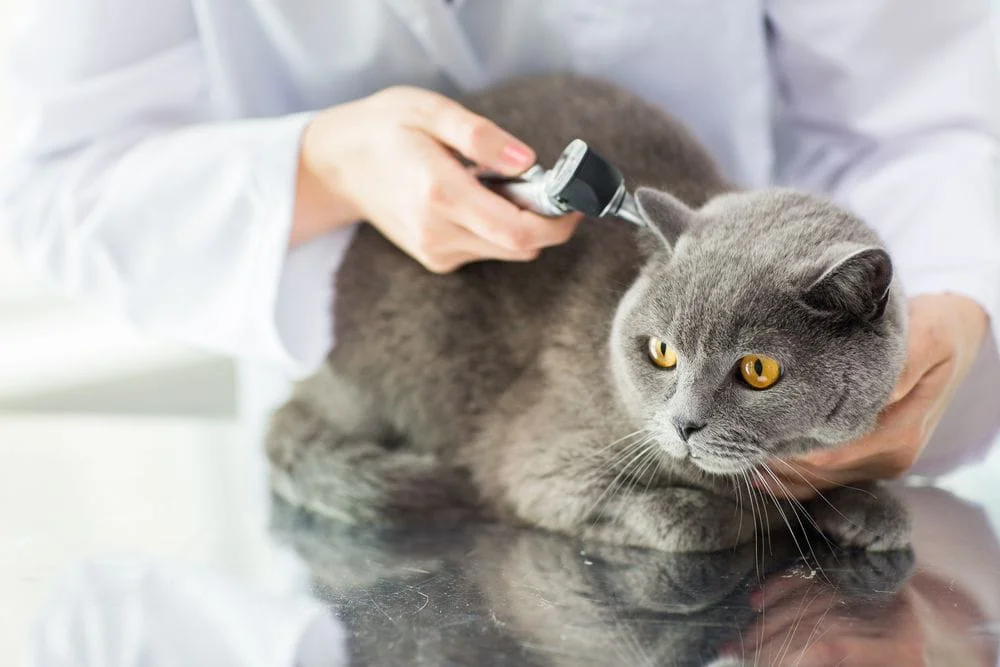Your cat may like to give the impression that he's indestructible when actually nothing could be further from the truth. But how can you keep him genuinely healthy with the aid of vaccinations? Here are the answers to some frequently asked questions on the subject at All About Cats Veterinary Hospital in Las Vegas NV.

Does my cat need vaccinations if he has a healthy immune system?
A healthy feline immune is capable of fending off infectious diseases -- but only after it has made antibodies aimed at fighting those specific germs. Normally, it takes exposure to the actual germ to trigger the production of these antibodies. But when a disease can cause severe illness or even death in that first exposure, an advance defense is necessary.
What do vaccines do?
Vaccines mimic the disease germs they're intended to protect against. When they're injected into the body, the immune system reacts as if they were the real thing (while not causing symptoms), creating antibodies that can now protect your cat.
When should my cat start receiving vaccinations from your Las Vegas vet team?
Our Las Vegas vet team recommends starting vaccinations at around 8 weeks of age. That's because kittens soon lose the antibodies their mother's milk initially lends to them during this period. Your veterinarian at All About Cats Veterinary Hospital can administer both core and elective vaccinations.
What are core vaccinations for cats?
Core vaccinations are a must for every kitten and cat, since the diseases they protect against are so prevalent. Your cat will receive core vaccinations againstRhinotracheitis Virus, feline Calici Virus, feline Distemper Virus (Panleukopenia,) and the Rabies virus.
What are elective vaccinations for cats?
Elective vaccinations are administered only to those cats that face an elevated risk of particular diseases. For instance, if your cat's lifestyle puts him in the path of Feline Leukemia Virus, usually spread by direct contact with an infected cat, we may recommend that he receive vaccinations against this disease.
How frequently does my cat need vaccinations?
Kittens get multiple rounds of core (and sometimes elective) vaccinations during their first year, giving them a solid foundation of resistance. Your cat's vaccination journey doesn't end there. Vaccines eventually lose their strength, rendering their hosts vulnerable to disease again. That's why we also administer booster shots at predetermined intervals to keep your cat protected.
Since my cat never goes outside, does he really need vaccines?
Some of the infectious viruses can be brought into our homes on our shoes and clothes. This is generally the case for all of us, but especially true for people who visit pet areas when out of the house. Viruses can be picked up by walking in pet stores, parks, vet clinics, animal shelters, other homes where there are cats present, and generally anywhere a sick cat has been. Also, accidents happen and no one can be 100% certain that a cat wont get out out of the house at some point. A cat's exposure to strange cats outside the home is the highest risk factor.
My cat doesn't feel well after vaccines, so should I stop giving them?
Mild symptoms ranging from fever to soreness at the injection site can arise after your cat is vaccinated. However, it is important not to stop giving them, because their rewards far outweigh any risks. Most of the time, the risks are fewer than those presented by the disease itself. Your cat may likely be given medications along with their future vaccines to help minimize these reactions. In some rare cases, your vet may advise to no longer give certain vaccines. Cat vaccinations have saved the lives of countless felines, and play an important role in fighting feline infectious disease.
What if I decide not to give my cat the rabies vaccine that is required by state law?
According to Nevada State law NAC 441A.435, cat owners must have their cats vaccinated for rabies each year. Rabies vaccine laws are in place to ultimately protect Nevada from the rabies virus spreading throughout its wildlife population and causing risks to human health. If your cat or dog gets out of the house and is retrieved by animal control or if your pet bites a person, proof of Rabies vaccine will be requested. In these situations, cats and dogs that are vaccinated for Rabies are handled differently than pets that have not had a recent Rabies vaccine. Quarantine or impound laws differ from county to county in these cases.
Is it true that vaccines can cause tumors?
In rare cases, injectable vaccine and non-vaccine products have been associated with the development of a cancerous tumor called a sarcoma at injection sites in cats. We customize vaccines schedules for each cat's risk level, and try to minimize the number of vaccines given throughout its lifetime, therefore minimizing the sarcoma risk. We also use a brand of vaccine that has minimized it's ingredient list to help avoid reactions. It is important to discuss this issue with your veterinarian prior to your cat's vaccinations so you can make clear and educated decisions about your cat's health.
Your Veterinarian Is Ready to Help Your Cat Thrive
Don't leave your favorite feline's future to chance. Give your cat the long and healthy life he/she deserves. Call All About Cats Veterinary Hospital at (702) 257-3222 to schedule a checkup today. We're in the business of helping Las Vegas cats thrive!
